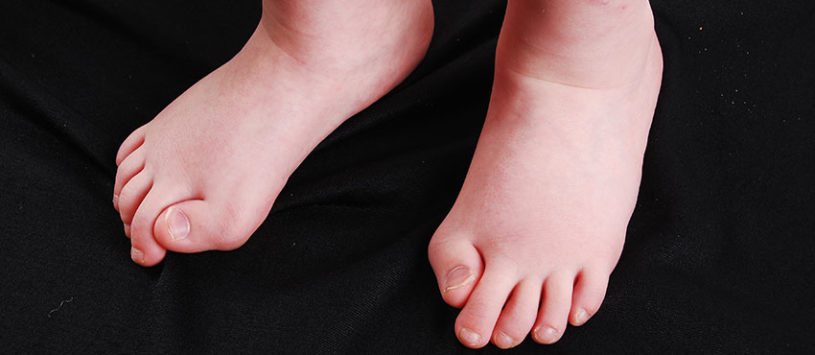Fibrodysplasia Ossificans Progressiva (FOP) is an extremely rare and disabling genetic condition causing bone to form in muscles and other soft tissue. Whenever extra bone is formed across joints it permanently restricts movement. It is a progressive disease, and there is currently no treatment or cure. Most people with FOP experience severe physical disability and have a limited life expectancy. It has no racial or geographic pattern. It does not affect a person’s intelligence.
Malformation of the big toes is a key to early identification of the condition, as it is often the only sign present at birth. If this is recognised, significant harm from unnecessary investigations can be avoided.
FOP is accelerated by trauma, so invasive diagnostic medical procedures can exacerbate the condition. FOP is commonly misdiagnosed as cancer, with catastrophic consequences from unnecessary procedures.
FOP is an ultra rare disease , affecting approximately 1 in 1 million people worldwide, so most health professionals haven’t met someone with FOP before and therefore won’t recognise it initially. Of the estimated 2500 diagnosed cases across the globe, there are 18 people in Australia and 2 in New Zealand that are confirmed as having FOP.
We work closely with the International FOP Association (IFOPA) who have many resources explaining FOP, including a series of videos available here.

